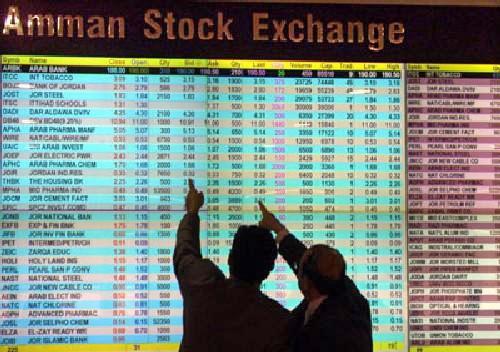- Local News
- Mon-2020-05-11 | 02:49 pm

The number of traded shares reached 500,000, which were executed through 105 contracts, the Jordan News Agency, Petra, reported, indicating that 21 companies closed at a low, while four companies closed at a high.
Commenting on the return to trading, economist Wajdi Makhamreh said the results were expected, and the trade volume was "very humble”, noting that Sunday does not reflect the whole trade volume for the market, which has over 190 companies listed.
"Following the hiatus, the market needs to trade for many days to collect data, as the beginning is bound to be unstable, so we need to observe and see what happens,” Makhamreh said.
"I proposed earlier establishing an investment fund by banks and the Social Security Corporation (SSC) to absorb any hits in the market in the upcoming period, because the crisis is continuing, and the stock exchange market is a mirror to the economy,” Makhamreh said.
He said that the "Himmet Watan” fund collected around JD91 million, and if only JD50 million was collected, it would support the ASE to absorb any decline.
"If the market is bought and run by a professional and objective management, it could bring positive revenues for contributors to the proposed fund, whether from the private sector, banks, insurance companies, the SSC and even high-net worth individuals would be able to invest in the ASE,” the economist added.
Economist Husam Ayesh said the return was meant to "improve morale” for companies and economic sectors to show that things are returning to normal, which require the return of trading in the ASE, similar to what other countries have done.
"Regardless of the initial results of the return, it should not be implemented the same way it was before the crisis,” Ayesh said, alluding to what has been done by changing the limit-up and limit-down percentages from 5 to 2.5.
He added that the number of stocks that can be exchanged need to be also limited to ensure small investors are not impacted, especially for those who live off the revenue from the market.
"This can be a trial phase to determine the requirements for a safe full return and its approach, and this requires scrutiny and supervision,” he said, noting that this helps set rules that fit the "post-corona phase”, as the tools from before "cannot be expected to remain effective”








